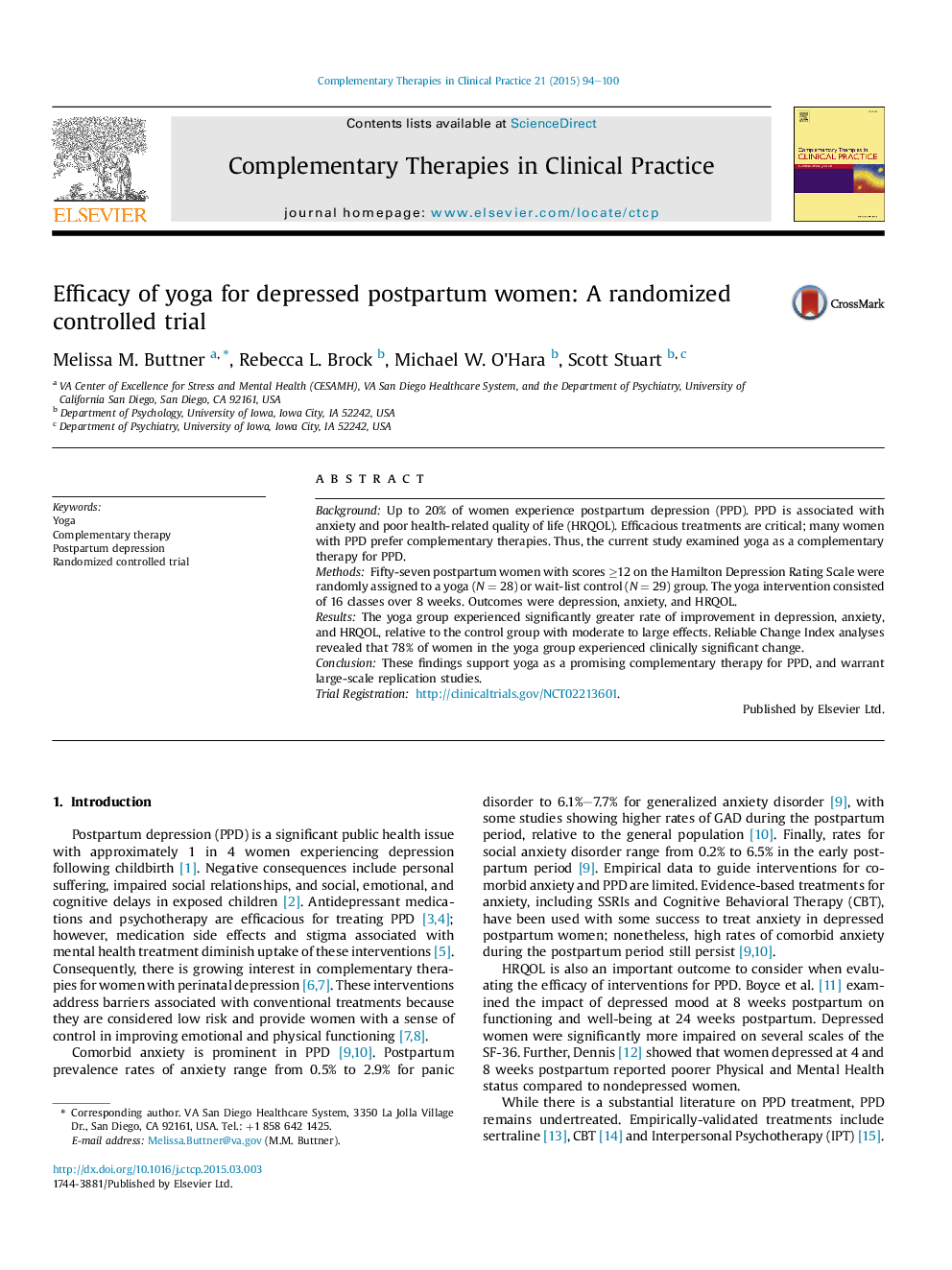| Article ID | Journal | Published Year | Pages | File Type |
|---|---|---|---|---|
| 2628739 | Complementary Therapies in Clinical Practice | 2015 | 7 Pages |
•Yoga as a complementary therapy for postpartum depression was examined.•57 depressed postpartum women were randomly assigned to yoga or WLC group.•Significant change in depression, anxiety, and HRQOL in yoga, relative to WLC.•Clinically significant change detected in 78% of women in the yoga group.•Replication studies are warranted to examine efficacy and mechanisms of change.
BackgroundUp to 20% of women experience postpartum depression (PPD). PPD is associated with anxiety and poor health-related quality of life (HRQOL). Efficacious treatments are critical; many women with PPD prefer complementary therapies. Thus, the current study examined yoga as a complementary therapy for PPD.MethodsFifty-seven postpartum women with scores ≥12 on the Hamilton Depression Rating Scale were randomly assigned to a yoga (N = 28) or wait-list control (N = 29) group. The yoga intervention consisted of 16 classes over 8 weeks. Outcomes were depression, anxiety, and HRQOL.ResultsThe yoga group experienced significantly greater rate of improvement in depression, anxiety, and HRQOL, relative to the control group with moderate to large effects. Reliable Change Index analyses revealed that 78% of women in the yoga group experienced clinically significant change.ConclusionThese findings support yoga as a promising complementary therapy for PPD, and warrant large-scale replication studies.Trial Registrationhttp://clinicaltrials.gov/NCT02213601.
